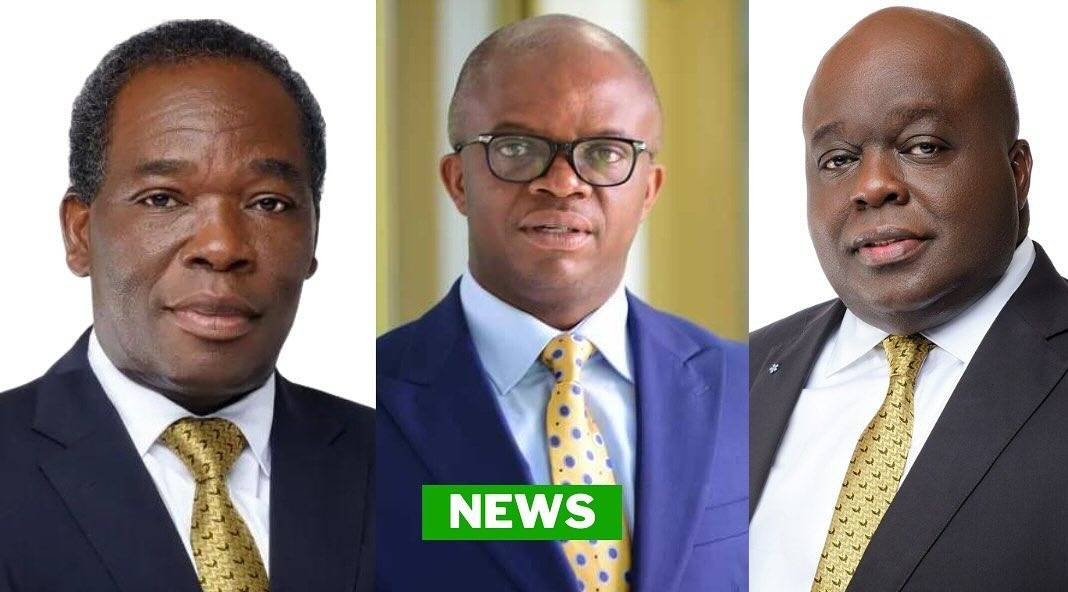In the heart of Accra, the bustling capital of Ghana, a quiet storm was brewing within the corridors of Ghana Commercial Bank (GCB). The bank, a venerable institution with a storied history, was embroiled in a controversy that threatened to undermine its reputation and the trust it had built over decades. The Herald, a prominent national newspaper, had just published an explosive report detailing a scandal involving the bank's board members and a lavish expenditure on travel allowances.
The report revealed that GCB's board had allocated over 5.7 million Ghana cedis (approximately $396,000) for travel allowances related to a training program called "The Complete Board Directors Programme." This sum, which excluded additional expenses like first-class airfare and the actual training costs, was deemed exorbitant and "questionable" by insiders within the state-owned financial institution.
The training program was organized by Inter Africa Consulting Group and was split between two locations: the United States and South Africa. Some board members traveled to the United States while others went to South Africa, all in the name of professional development. However, the details that emerged painted a picture of excess and potential misuse of public funds.
The Leaked Memo
The scandal broke when an internal memo was leaked to The Herald. The memo outlined the specific allowances allocated to each participant, including substantial sums for accommodation, per diem, and travel days. According to the memo, each board member received generous daily allowances, often well beyond the usual standards for such trips.
The revelation sparked a wave of outrage across the nation. Citizens and financial experts alike questioned the necessity and ethics of such extravagant spending, especially given the economic challenges facing the country. The memo detailed payments that included luxurious accommodations and daily allowances that seemed more fitting for a lavish vacation than a professional training program.
The Public Outcry
As the news spread, public opinion quickly turned against the bank's board. Social media platforms were ablaze with criticism, with many Ghanaians expressing their anger and disappointment. Hashtags like #GCBScandal and #BoardExcess began trending, reflecting the widespread disapproval of the board's actions.
Economic analysts pointed out that the amount spent on travel allowances could have been better used to support local businesses, fund community projects, or improve the bank's services. The scandal also drew attention from government officials, who called for a thorough investigation into the matter.
Inside the Bank
Within GCB, the atmosphere was tense. Employees at various levels of the organization were stunned by the revelations. Many felt betrayed by their leadership and worried about the impact this scandal would have on the bank's reputation and their own livelihoods.
Sarah Mensah, a senior manager at GCB, voiced the sentiments of many when she said, "It's disheartening to see such a blatant misuse of funds. We work hard to serve our customers and support the community, and this kind of behavior undermines everything we stand for."
The board members implicated in the scandal faced intense scrutiny. Some attempted to justify the expenses, arguing that the training program was essential for their roles and that the costs were within reasonable limits. However, these explanations did little to quell the growing discontent.
The Investigation
In response to the public outcry, GCB's executive leadership announced an internal investigation into the matter. An independent audit firm was hired to review the travel allowances and the overall expenditure related to the training program. The goal was to determine whether the funds had been misused and if any violations of the bank's policies had occurred.
As the investigation unfolded, more details emerged about the training program and the expenses involved. It was revealed that the board members had opted for first-class airfare, staying in five-star hotels, and dining at expensive restaurants. These revelations only fueled the anger of the public and intensified calls for accountability.
The investigation also looked into the role of Inter Africa Consulting Group in organizing the training program. Questions were raised about the selection process for the training provider and whether proper due diligence had been conducted.
The Fallout
The fallout from the scandal was swift and far-reaching. Several board members, including the chairman, were forced to resign amid mounting pressure. The executive leadership of GCB vowed to implement stricter oversight and more transparent processes to prevent such incidents from occurring in the future.
In a press conference, GCB's CEO, Kwame Adjei, addressed the scandal and outlined the steps the bank would take to restore trust. "We acknowledge the mistakes that have been made and the breach of trust with our stakeholders. We are committed to learning from this incident and ensuring that our actions align with our values and responsibilities."
The bank also announced plans to recover any funds that were deemed to have been misused. Legal actions were considered against those found to have acted improperly. Additionally, GCB pledged to increase its investment in local training programs to build the capacity of its board and staff without incurring excessive costs.
Rebuilding Trust
Rebuilding trust was a monumental task for GCB. The scandal had left a deep scar on the bank's reputation, and it would take time and consistent effort to regain the confidence of its customers, employees, and the general public.
One of the first steps GCB took was to enhance transparency in its operations. The bank implemented new policies requiring detailed reporting and justification for all expenses related to travel and training. These measures aimed to ensure that future expenditures were reasonable and in line with the bank's mission and values.
GCB also launched a series of community engagement initiatives to demonstrate its commitment to social responsibility. These initiatives included funding for educational programs, support for small businesses, and investments in infrastructure projects in underserved areas. By taking tangible steps to benefit the community, the bank hoped to rebuild its image and restore public trust.
Lessons Learned
The scandal at GCB served as a stark reminder of the importance of ethical leadership and accountability in financial institutions. It highlighted the need for robust governance structures and oversight mechanisms to prevent misuse of funds and ensure that organizational actions align with public expectations and legal standards.
For GCB, the experience was a painful but necessary lesson. It underscored the importance of transparency, integrity, and a commitment to serving the best interests of stakeholders. As the bank worked to recover from the scandal, it aimed to emerge stronger and more resilient, with a renewed focus on ethical practices and community engagement.
Conclusion
The story of Ghana Commercial Bank's travel allowance scandal is a cautionary tale about the dangers of excess and the critical need for accountability in leadership. While the bank faced significant challenges in the wake of the revelations, it also had the opportunity to learn, grow, and rebuild its reputation.
By implementing stricter oversight, increasing transparency, and investing in community initiatives, GCB aimed to demonstrate its commitment to ethical practices and regain the trust of its stakeholders. The scandal was a dark chapter in the bank's history, but it also served as a catalyst for positive change and a renewed focus on the values that had made GCB a trusted institution in Ghana.
In the end, the journey to recovery was not just about addressing the immediate issues but about fostering a culture of integrity and responsibility that would guide the bank into a more sustainable and ethical future.
Video:




No comments yet
Be the first to share your thoughts!